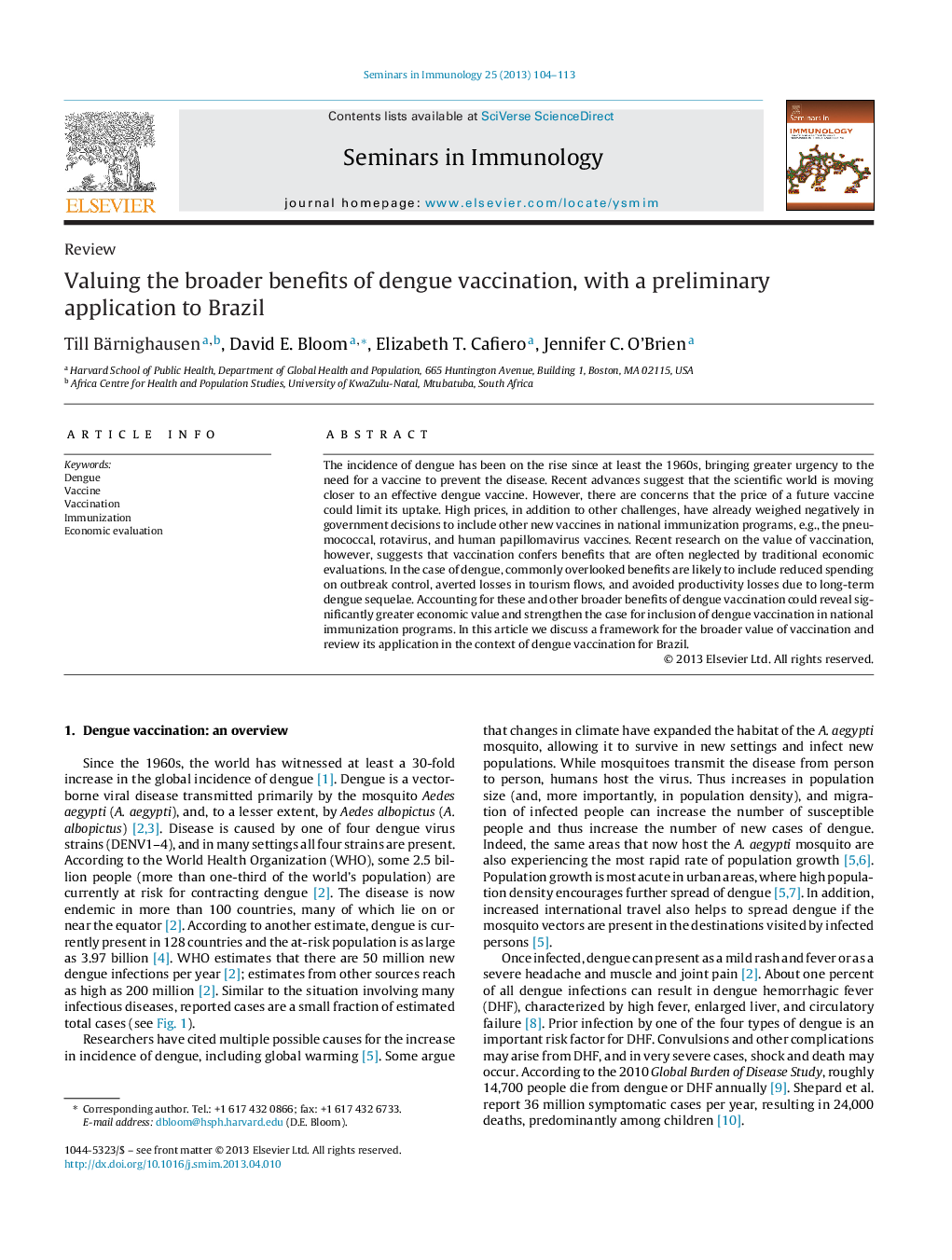| Article ID | Journal | Published Year | Pages | File Type |
|---|---|---|---|---|
| 6125865 | Seminars in Immunology | 2013 | 10 Pages |
Abstract
The incidence of dengue has been on the rise since at least the 1960s, bringing greater urgency to the need for a vaccine to prevent the disease. Recent advances suggest that the scientific world is moving closer to an effective dengue vaccine. However, there are concerns that the price of a future vaccine could limit its uptake. High prices, in addition to other challenges, have already weighed negatively in government decisions to include other new vaccines in national immunization programs, e.g., the pneumococcal, rotavirus, and human papillomavirus vaccines. Recent research on the value of vaccination, however, suggests that vaccination confers benefits that are often neglected by traditional economic evaluations. In the case of dengue, commonly overlooked benefits are likely to include reduced spending on outbreak control, averted losses in tourism flows, and avoided productivity losses due to long-term dengue sequelae. Accounting for these and other broader benefits of dengue vaccination could reveal significantly greater economic value and strengthen the case for inclusion of dengue vaccination in national immunization programs. In this article we discuss a framework for the broader value of vaccination and review its application in the context of dengue vaccination for Brazil.
Related Topics
Life Sciences
Immunology and Microbiology
Immunology
Authors
Till Bärnighausen, David E. Bloom, Elizabeth T. Cafiero, Jennifer C. O'Brien,
